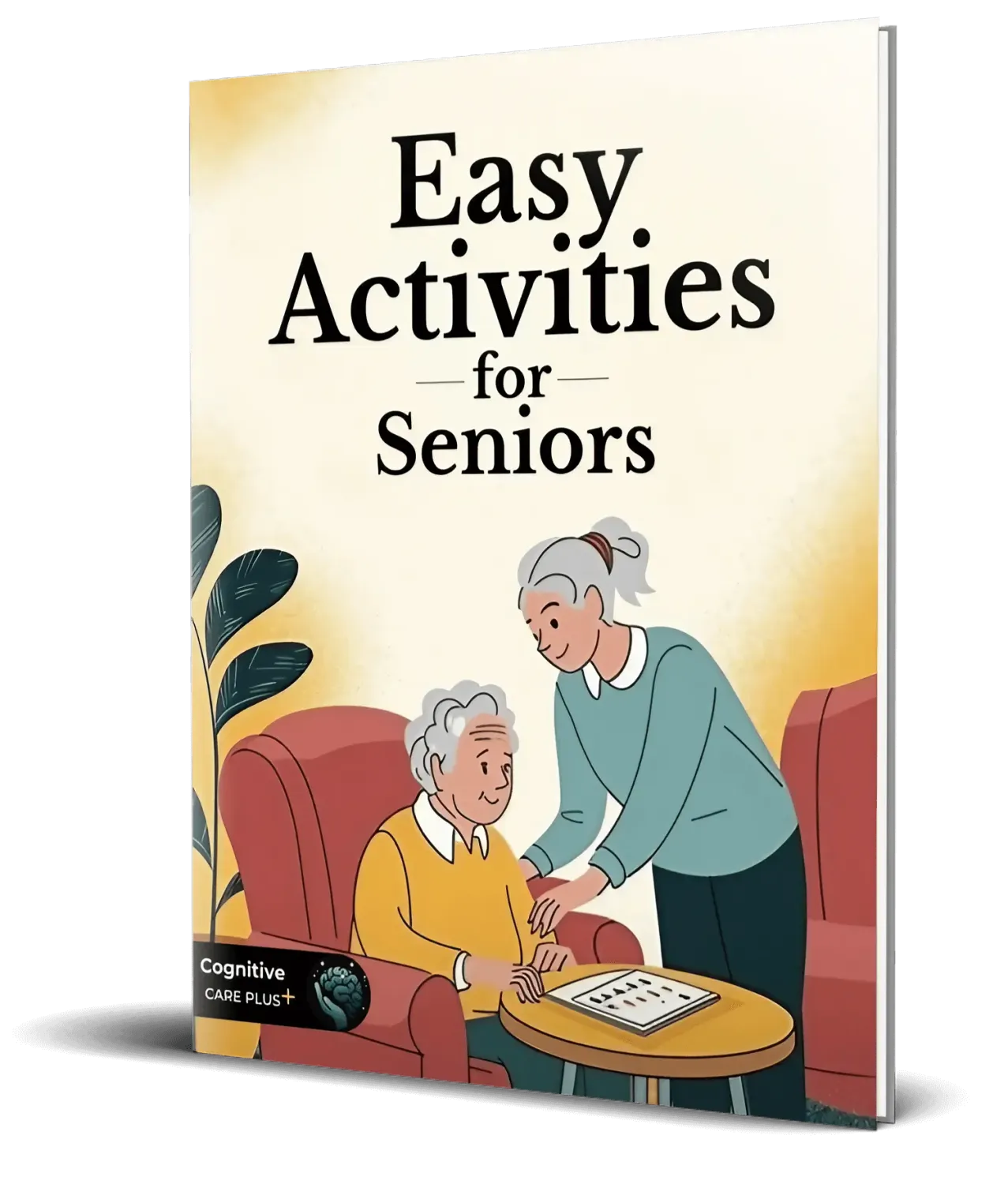Comforting Realistic Stuffed Animals for Dementia Care: Are They Worth It?
Have you ever noticed how a simple touch can bring back a flood of memories?
For people living with dementia, moments of comfort and connection can be rare—but incredibly powerful. In recent years, realistic stuffed animals have become more than just toys. They’re now valuable tools in dementia care, offering companionship, emotional comfort, and even moments of joy.
As a caregiver, you might wonder: Are these lifelike cats, dogs, and plush companions really worth it? Let’s explore how they work, why they help, and how to choose the right one for your loved one.
🎧 Prefer to listen? Play our podcast episode below to learn how realistic stuffed animals can bring comfort, reduce anxiety, and spark positive memories for people with dementia, making daily care more meaningful and enjoyable.
✨ Enjoyed the episode?
Subscribe to the Cognitive Care Plus Podcast for practical guides, expert insights, and compassionate support to help you care for your loved one with dementia.
🐾Why Stuffed Animals Can Be More Than Just Toys
From a neuropsychological perspective, the benefits go beyond “cute” or “fun.” Here’s why:
Sensory stimulation: Soft textures, weighted bodies, and gentle sounds activate the brain’s sensory pathways. This can improve alertness and mood.
Emotional memory: Familiar sensations—like holding a pet—can trigger positive memories from earlier life stages.
Anxiety reduction: Hugging a weighted stuffed animal can provide a calming, grounding effect similar to deep-pressure therapy.
Social connection: A realistic cat or dog can become a conversation starter, encouraging interaction between the person and their caregiver.
Real-Life Stories of Joy and Connection
Beyond scientific research, caregivers worldwide have witnessed how realistic stuffed animals and robotic pets can awaken smiles, conversations, and cherished memories. In one case reported by ABC News Australia, residents in aged care facilities reconnected with happy moments from their past through the comfort of robotic pets (read the full story here).
Types of Comforting Stuffed Animals for Dementia Patients
Realistic Cats and Dogs
For many seniors, cats and dogs hold a special place in the heart. Realistic cat stuffed animals and realistic stuffed dogs mimic the look, feel, and even behavior of real pets. Soft fur, gentle purring, or simulated breathing can evoke warm memories and reduce loneliness.
Popular options include:
Purring cats that respond to touch.
Breathing dogs with realistic rise and fall of the chest.
Realistic plush animals in favorite breeds or colors.
Weighted Stuffed Animals for Anxiety
A weighted stuffed animal for anxiety adds gentle pressure to the lap or chest, creating a sense of security. This can help calm restlessness, reduce fidgeting, and improve focus.
For someone with dementia, the steady weight can feel like a reassuring hand—especially during moments of confusion or agitation.
Animatronic and Robotic Pets
Technology has brought us animatronic cats, animatronic dogs, and other robot pets for adults that can move, respond to touch, and even “look” at you. For dementia care, these robotic pets offer interactive companionship without the responsibilities of a live animal.
Recent research supports their benefits. An 8-month cluster randomized controlled trial in UK care homes found that affordable robot pets—specifically Joy for All cat and dog devices—led to significant reductions in neuropsychiatric symptoms such as delusions, depression, anxiety, elation, and apathy. Improvements were observed in 85 % of residents who interacted with the robots, with no loss of effect over time (PubMed).
Benefits include:
Safe and allergy-free.
Easy to clean and maintain.
Engaging for people in mid-to-late stages of dementia who may respond well to movement and sound.
You can explore our curated selection of Companion pets for seniors to find options that feel almost like the real thing.
How to Choose the Right Stuffed Animal for a Loved One
When selecting a stuffed animal for seniors, consider:
Stage of dementia: In early stages, realistic interactive pets may spark conversation. In later stages, soft plush comfort may be more appropriate. You can use our Dementia Stages Chart to better understand which option might suit your loved one’s current needs.
Personal history: Did they have cats, dogs, or another favorite pet? Choose accordingly.
Care needs: Opt for washable fabrics and durable designs.
Level of interaction desired: Decide between a simple plush companion or a responsive companion robot for elderly users.
💛 Caregiver Highlights: Real Stories
- 🧸 “She loved it and it knew her name—perfect for her abilities.” – Botryoid2000, Reddit
- 🐱 “Hugged her robotic cat all day, her good days were the best in months.” – Codles, Reddit
- 🐾 “Treated the Joy for All cat as real, even handling ‘spa days’ for battery changes.” – Iloveoes, Reddit
- 🎶 “Interactive plush dog created incredible engagement and joy.” – manowarp, Reddit
- 💡 “A delight for late-stage patients—gave focus and made them feel needed.” – JacksFalseHope, Reddit
💡 Takeaway: Realistic stuffed animals and robotic pets bring comfort, companionship, and emotional support to people with dementia—making daily life calmer and more joyful for both patients and caregivers.
Fuente: Reddit
Are They Worth It?
For many families, the answer is yes. Therapy stuffed animals—whether soft plush, weighted, or animatronic—can ease anxiety, improve mood, and create moments of connection. While they can’t replace human interaction, they can fill the quiet spaces with comfort and familiarity.
If you’ve never tried one, it might be the simplest way to bring a spark of joy back into your loved one’s day.
To see these benefits in action, watch this short video showing residents at a memory care facility interacting with realistic therapy cats. Notice how these soft, comforting companions bring smiles, calm, and gentle engagement, reinforcing the positive impact therapy stuffed animals can have on adults with dementia.
FAQ
Are stuffed animals good for dementia patients?
Yes. They can provide sensory stimulation, emotional comfort, and help reduce anxiety.
What is the best stuffed animal for someone with Alzheimer’s?
Choose based on their personal preferences—realistic cats, realistic stuffed dogs, or weighted plush animals work well.
How do robotic pets help the elderly?
They offer companionship, interactive engagement, and reduce loneliness without the care needs of live pets.
Are weighted stuffed animals safe for seniors?
Yes, when they are appropriately sized and not too heavy for the user to hold comfortably.
Do realistic stuffed animals improve mood in dementia patients?
Many caregivers report noticeable improvements in mood, relaxation, and social interaction.
Final Thought:
A realistic stuffed animal isn’t just a gift—it’s a bridge to the parts of the heart and mind that dementia can’t erase. Sometimes, comfort comes in the form of a soft purr or a gentle wag.
👉 Looking for more engaging ideas for seniors? Explore all our categories to find activities, sensory tools, and brain-boosting resources for every stage of dementia care.
Share this article:
If this article helped you, share it with other caregivers who need encouragement.
💬 We’d love to hear from you!
Have you tried using stuffed animals as part of a daily routine for your loved one with dementia? What types have brought comfort or joy, and what challenges did you encounter? Share your experiences and tips in the comments below—your insights could help another caregiver feel less alone on this journey.

Trending
Simple tools that make caregiving...
Turning simple play into a brain-boosting activity...
Here’s what to look for when choosing...

About me

Hi there 👋 My name is George Cassou, I'm a psychologist and the creator of this blog. Inspired by my journey caring for my mom with Alzheimer's, I share activities and tips to bring joy and connection.

Affiliate Disclosure:
This website contains affiliate links. If you click on these links and make a purchase, we may earn a small commission at no additional cost to you. These commissions help us keep this site running and allow us to continue creating helpful content to support caregivers and families.




